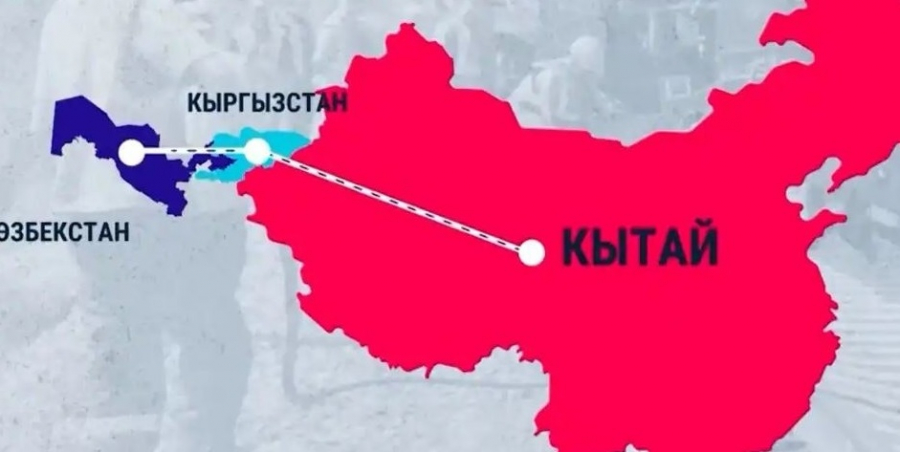
[ad_1]

Over the years, discussions on reviving the Silk Road have never stopped.
For many years, people have been talking about reviving the Silk Road connecting Europe and China. Central Asian countries should become the most important logistics hubs in this link. Take the recently started China-Kyrgyzstan-Uzbekistan railway as an example. What benefits will this project bring to the countries, and what risks does it involve?
Let’s try to look at this issue with the example of Kyrgyzstan. Recently, Kyrgyz Prime Minister Japarov said that the construction of this railway will contribute to the country’s socio-economic development, tap Kyrgyzstan’s transit potential and open up its seaports.
Of course, the opening of the railway will help with infrastructure development, creating new jobs and investment, but what does the country need to do in return?
Kyrgyzstan agreed to the construction even though there were differences in the track gauge. China adopted the international standard of 14.35 mm, Kyrgyzstan adopted the Soviet standard of 15.20 mm. Both sides agreed to set the track gauge from Turget to Makmal at 14.35 cm – narrower by Chinese standards. In the Makmal area there will be an expansion and a reloading station, and a 15.20 cm wide track will start from here.
“If we start from Turget, we need to build a loading and unloading center there, and in mountain conditions this is very difficult. It is precisely by creating such a center in Makmal that a logistics center will be created,” said the state-owned enterprise “NC “Kyrgyzstan Temirzoglu”.
Central Asia analyst Davide Cancarini believes that financing issues are the biggest obstacle to the implementation of this infrastructure project.
“Thus, the project will be financed by China, since Uzbekistan and Kyrgyzstan do not have the financial capacity for this. According to recent estimates, the construction of this railway will require $8 billion. Therefore, China will have to pay. There are also geographical obstacles. Sources say that about 50 bridges and 90 tunnels should be built,” the analyst noted.
Experts also believe that building a railway with Chinese loans is a risky business. The question of what conditions Kyrgyzstan will participate in the project remains unresolved.
There is also the issue of government debt, which China does not seem to be interested in either. Otherwise the railway would have been built long ago. Perhaps another option would be to exchange the debt for something else. Questions are also raised about the direction of the railway. After all, the route passes through several mines. An exchange could be a way to reduce the risk for Chinese investors. Therefore, the option of concluding an agreement related to the mines is not ruled out.
At the end of last year, Kyrgyzstan’s public debt amounted to $6.3 billion, of which $4.6 billion was external debt, according to the Kyrgyz Republic’s Ministry of Finance.
Kyrgyz political scientist Kuban Abdiman believes that since most of the foreign debt belongs to China, they may no longer borrow money from Beijing to build railways.
“According to the current policy of Kyrgyzstan, we will not borrow money from China. The government is pursuing a policy that allows investments, whether in railways. You will get part of the profit after the sale. I can’t be sure whether these funds will come from China. The construction of this railway will cost 4.5-5 billion US dollars. It is said that most of it will come from China. But to be honest, I have not seen any agreement. However, if Kyrgyzstan does not borrow money, then there will be such a policy: “You will engage in investment projects yourself, and then you will get profits and repay debts,” K. Abdymen is convinced.
Shumkarbek Adilbek Ulu, former director of the Kyrgyz Investment Promotion and Protection Agency, believes that financing the project with funds from future railway operations is not the best option for Kyrgyzstan.
China has implemented similar projects before. History shows that they were implemented at the expense of a large part of future profits, or in exchange for a valuable share of deposits or favorable conditions for the use of completed projects. Here again the question arises: Will China interfere in the politics of Kyrgyzstan? What will this lead to?
Photo www
[ad_2]
Source link


